Recipients of the 2011 Missouri Honor Medal for Distinguished Service in Journalism Announced
Five Media Leaders, Two News Organizations and a Public Relations Expert to Be Honored This Fall
Columbia, Mo. (July 12, 2011) — Five media leaders, two news organizations and a public relations expert will be honored this fall with one of journalism’s highest awards, the Missouri Honor Medal for Distinguished Service in Journalism.
The Missouri School of Journalism has awarded the Missouri Honor Medal since 1930. Tom Brokaw, Christiane Amanpour, Sir Winston Churchill, Gloria Steinem, Deborah Howell and Gordon Parks are among the distinguished journalists, advertising and public relations practitioners, business leaders, institutions and media organizations who have been recipients of this influential award.
The awards will be given during an evening banquet on Monday, Oct. 3, on the campus of the University of Missouri. Those to be honored are:
- Margaret Wolf Freivogel, an award-winning journalist; founding editor, the St. Louis Beacon
- FRONTLINE, America’s longest-running investigative TV documentary series
- Mario R. Garcia, a designer for multiplatform news presentation
- David Granger, editor-in-chief, Esquire magazine
- Robert S. Leaf, international public relations counselor
- Danny Lyon, a photographer, filmmaker and writer
- Mark Russell, editor, The Orlando Sentinel
- Süddeutsche Zeitung, the largest and most-respected national quality daily newspaper in Germany
Margaret Wolf Freivogel is the founding editor of the St. Louis Beacon, a non-profit regional news organization that is known for combining journalistic excellence with innovation in community engagement and business strategy.
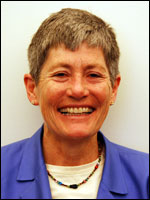
The Beacon provides news that matters for St. Louis-area residents, with emphasis on politics, the economy, health, education, race and the arts. Beacon special projects have included “Race, Frankly,” a yearlong look at how race influences the city’s issues, and “Worlds Apart,” an examination of factors that cause regional health disparities. The Beacon also engages St. Louis-area residents through in-person events, through partnerships with other news and community organizations, and through email and social media. Since its launch in 2008, the Beacon has won numerous St. Louis journalism awards and has twice been a finalist for a general excellence award from the Online News Association.
Previously, Freivogel worked for 34 years at the St. Louis Post-Dispatch as a reporter, Washington correspondent and assistant managing editor. Her Washington reporting focused especially on women in politics and family issues. Her awards include the National Press Club‘s Washington Correspondent’s Award and the American Bar Association‘s Gavel Award. Freivogel received a lifetime achievement award from the St. Louis Press Club. She was president of the Journalism and Women Symposium and serves on the founding board of the Investigative News Network.
A St. Louis native, Freivogel graduated in 1971 from Stanford University, where she was editor of the Stanford Daily and received an award as the outstanding senior woman. She is married to William H. Freivogel, director of the school of journalism at Southern Illinois University at Carbondale. They have four children and two grandchildren.
FRONTLINE debuted in 1983 and remains America’s longest-running investigative documentary series on television. Under the direction of Executive Producer David Fanning, the series has won all of the major awards for broadcast journalism: 45 Emmys, including a special Emmy award for excellence in documentary filmmaking; 23 Alfred I. duPont-Columbia University Awards; 14 Peabody Awards; and 11 Robert F. Kennedy Journalism Awards. In 1990 and in 1996, FRONTLINE was recognized with the Gold Baton – the highest duPont-Columbia Award – for its “total contribution to the world of exceptional television.” In 2002, the series was honored with an unprecedented third Gold Baton for its post-Sept. 11 coverage, a series of seven hour-long documentaries on the origins and impact of terrorism. In 2003, “A Dangerous Business,” a FRONTLINE/New York Times joint investigation of the cast-iron pipe-making industry, was awarded the Pulitzer Prize for public service.
 One of FRONTLINE’s singular achievements has been its embrace of the Internet. In 1995, FRONTLINE developed one of the first deep-content websites in history. By putting interviews, documents and additional editorial materials on the Web, the series made its journalism transparent and changed the nature and content of broadcast journalism.
One of FRONTLINE’s singular achievements has been its embrace of the Internet. In 1995, FRONTLINE developed one of the first deep-content websites in history. By putting interviews, documents and additional editorial materials on the Web, the series made its journalism transparent and changed the nature and content of broadcast journalism.
Nearly three decades after FRONTLINE’s debut, in 2011, the series launched a hard-hitting new monthly magazine program – a key part of an ongoing effort to remake the series for the digital age. The series extends FRONTLINE’s award-winning brand of broadcast journalism with more “fast-turnaround” news reports and timely investigations airing throughout a new year-round schedule.
Mario R. Garcia, CEO and founder of Garcia Media, helps media houses worldwide to rethink their products to survive and thrive in a multiplatform world. With more than 40 years of design and teaching experience, Garcia has been a consultant to more than 560 newspapers, magazines, websites and tablets worldwide. These include The Wall Street Journal and its European and Asian editions, The Washington Post, Paris Match (France), Die Zeit (Germany); El Mercurio (Chile), The Hindu, (India), Il Secolo XIX (Italy), El Tiempo (Columbia), Göteborgs-Posten(Sweden), and many others around the world.

Garcia focuses his current work on the creation and development of news iPad applications, emphasizing the importance of storytelling across platforms. He is engaged in a new EyeTrack research project with The Poynter Institute, on how users approach news iPad applications. Garcia has served on the faculty at Syracuse University, the University of South Florida and The Poynter Institute, where he founded the visual journalism department.
Garcia is author of more than a dozen books, publications and chapters, including his most recent, “Pure Design.” Two are about compact formats: “The Impact of the Compact” and “Shaping the Future of Newspapers: New Print Products.” His next book, based on the iPadLab segments of his blog, will be published at the end of 2012.
Garcia has served as a member of Poynter’s National Advisory Board. He has won numerous awards from the Society of News Design and received its first Lifetime Achievement Award. People en Espanol magazine included Mario Garcia on its 2007 list of the 100 most influential Hispanics in the world.
David Granger has served as editor-in-chief of Esquire magazine since 1997 and has led the magazine into one of its most successful eras. Between 1998 and 2011, Esquire was a finalist for 54 National Magazine Awards, the industry’s highest honors, and has won 15, including the award for General Excellence in 2006.
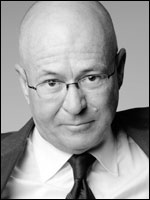
Under Granger’s leadership, Esquire has expanded the limits of the print medium. In 2008, using electronic paper technology, Esquire created the first magazine cover on which words and images moved. In 2009, it put a window in its cover and then, three months later, created the first-ever “mix n match” cover of a magazine. Later that year, Esquire created the first augmented-reality issue of a magazine ever. Their monthly application for the iPad won the first-ever National Magazine Award for mobile applications.
Esquire has published some of the most memorable non-fiction in magazines in his tenure, including “The Falling Man,” by Tom Junod, “The School” by C.J. Chivers and “The Things That Carried Him,” by Chris Jones. Esquire has been honored as Magazine of the Year by the Society of Publication Designers, as one of America’s Most Important Magazines by the Missouri School of Journalism and is regularly cited as one of America’s 10 best magazines by the Chicago Tribune. Advertising Age and Adweek have each named Granger the magazine industry’s Editor of the Year.
Previously Granger was the executive editor at GQ for nearly six years. In the preceding decade, he held executive-level editor positions at various magazines.
Granger holds a master’s degree in English from the University of Virginia and a bachelor’s degree from the University of Tennessee.
Robert S. Leaf, BJ ’52, MA ’54, is one of the world’s most knowledgeable counselors on international public relations. He began his career in Burson-Marsteller‘s New York office in 1957 as the company’s first trainee. In 1964, he moved to Brussels to open new offices in Europe, then, in 1967, to London, as chief executive of international, where he guided Burson-Marsteller’s expansion in Asia, Australia, Latin America and the Middle East, and for two years (1986-1987), directly supervised Burson-Marsteller’s Asia/Pacific operations from Hong Kong, returning to his London base in 1988.
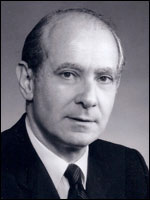
Leaf has advised corporations, government bodies and individuals on establishing a worldwide public relations strategy, what messages would be most effective in accomplishing their specific aims, how to make the most effective use of their agencies and their internal communications departments, and in message training senior management.
He has written many articles on marketing and communications and has spoken at events and conferences throughout the world including the U.S., Soviet Union, Eastern and Western Europe, the Middle East, South America, Australia, Asia and the People’s Republic of China, where he helped to establish in partnership with the Chinese Government the first Chinese public relations firm in China.
In 2000 Leaf won the Institute for Public Relation‘s first Alan Campbell-Johnson award for outstanding contributions to international public relations. He is listed in Who’s Who in the World, Who’s Who in America and Who’s Who in International Business and Debrett’s People of Today. Leaf is included in the American Biographical Institute’s “Great Minds of the 21st Century” edition.
Danny Lyon is a photographer, filmmaker and writer. Born in Brooklyn, N.Y., he studied history at the University of Chicago, where he graduated with a Bachelor of Arts degree in 1963. While still a student he joined the early southern civil rights movement, using his camera to support the Student Nonviolent Coordinating Committee. Upon graduation, he became the first staff photographer of the SNCC, creating a model that would be followed by many nongovernmental organizations to this day. This early photography work appeared in the book “The Movement” (1964).
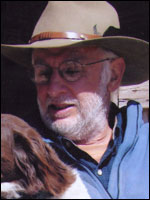
Lyon went on to publish a series of books of text and photographs, in which he immersed himself and became a participant in his subject, often spending years to realize a single project. His methods and style were later recognized as “new journalism.” To this day Lyon’s work epitomizes a counterculture spirit and focus on those who live outside of mainstream society. His first book, “The Bikeriders” (1967), recorded and glorified the life of the American bike rider. Lyon became a member of the Chicago Outlaw Motorcycle Club, traveled with the group and shared their lifestyle. To produce a later book, “Conversations with the Dead” (1971), Lyon was given unrestricted access by the Texas Department of Corrections to photograph convicts in six prisons over a 14-month period. He continues this work with “Deep Sea Diver,” a report of his journeys in China, which was published this year by Phaidon.
Lyon also has produced films, including “Los Ninos Abandonados,” “Willie,” “Born to Film” and “Murderers.” He writes long texts for his books and has authored the nonfiction work “Like a Thief’s Dream.”
Lyon received the Guggenheim Foundation Fellowship for photography in 1969, and in film making in 1979, and a Rockefeller Fellowship in Filmmaking. He has had solo exhibits at the Whitney Museum of American Art, the Art Institute of Chicago and the Corcoran Gallery in Washington, D.C. Lyon is the founding member of the publishing group Bleak Beauty.
Mark Russell, BJ ’84, is the editor of the Orlando Sentinel. He joined the central Florida newsroom in 2004 and served as managing editor and print news editor before taking the top newsroom job in October 2010.
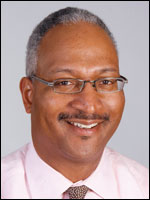
Previously Russell was at The Plain Dealer in Cleveland, the largest newspaper in Ohio. He joined The Plain Dealer in 1987 and worked as reporter, assistant city editor, business editor and assistant managing editor/metropolitan news. His tenure at The Plain Dealer was interrupted for two years, from 1993-1995, when he joined The Boston Globe as assistant metropolitan editor. Earlier in his career, Russell was a staff reporter in The Wall Street Journal’s Cleveland and Pittsburgh bureaus.
Russell serves as a director of the Florida Society of News Editors, the American Society of News Editors‘ Awards Board, the Central Florida chapter of the National Association of Black Journalists and the Institute for Advanced Journalism Studies at North Carolina A&T University in Greensboro, N.C. He is president of the board of directors of the Missourian Publishing Association, which oversees the Missouri School of Journalism’s multiplatform newspaper and advises the School’s dean. Russell also has served as a juror for ASNE’s annual journalism awards and the Pulitzer Prize. He was the founding director of the Cleveland Urban Journalism Workshop, a program started in 1989 by the local NABJ chapter. Russell completed the Advanced Executive Program at the Media Management Center at Northwestern University in 2003.
Russell and his wife, Christina, who graduated from MU in 1985, have a 22-year-old son and 17-year-old daughter.
Süddeutsche Zeitung, literally “South German Newspaper,” is the largest and most-respected national quality daily newspaper in Germany. The cross-media publication reaches 2.42 million readers each day through the nearly 437,000 print copies sold and the Internet. It strives to lead the journalism industry in using technology to engage citizens. In 2010 Süddeutsche Zeitung was one of the world’s first to use mobile augmented reality features viewable through smart phones in one of its magazine supplements.
![]() Some of the country’s top journalists either work for the Süddeutsche Zeitung or have spent considerable years of their careers there, and they have exposed various political and economic scandals through the years. The centrist-left paper is well-known for its daily front-page column “Streiflicht,” or streak of light, of 72 lines, which is published anonymously. The national edition features four sections: politics, culture, economy and sports. Editions sold in Munich and surrounding counties include a local insert. Süddeutsche Zeitung is favored by the country’s decision makers who are well-educated and in a higher income bracket.
Some of the country’s top journalists either work for the Süddeutsche Zeitung or have spent considerable years of their careers there, and they have exposed various political and economic scandals through the years. The centrist-left paper is well-known for its daily front-page column “Streiflicht,” or streak of light, of 72 lines, which is published anonymously. The national edition features four sections: politics, culture, economy and sports. Editions sold in Munich and surrounding counties include a local insert. Süddeutsche Zeitung is favored by the country’s decision makers who are well-educated and in a higher income bracket.
The newspaper published its first issue on Oct. 6, 1945, five months after the end of World War II in Germany. It was the first newspaper to receive a license from the U.S. military administration of Bavaria.
Updated: October 5, 2020